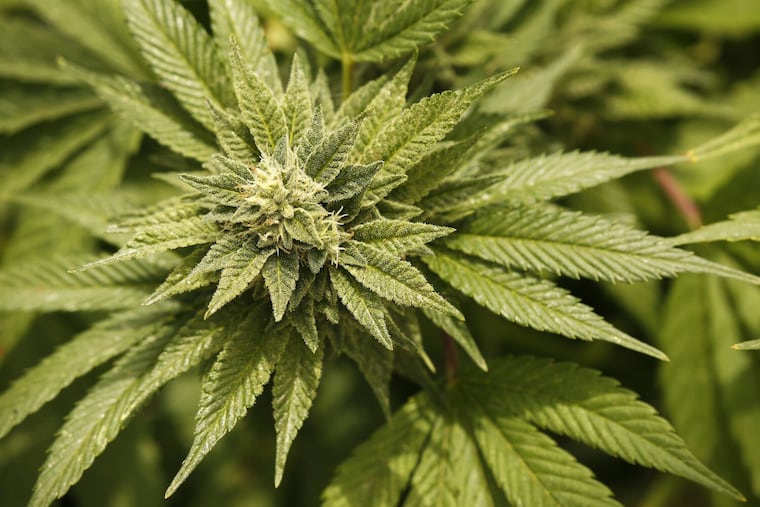New Jersey is starting recreational pot sales this week — but not in time for 4/20
The Cannabis Regulatory Commission did not specify which of the state's medical cannabis stores would be first out of the gate.

Recreational cannabis sales in New Jersey will start April 21, the state’s Cannabis Regulatory Commission said Thursday.
For the uninitiated, that’s one day after 4/20, a day many have long celebrated as an unofficial holiday for weed lovers.
Specific locations where sales will start were not identified. Regulators said they would post on the CRC’s website a list of which locations will open Thursday as soon as the medical marijuana companies notify the commission of their opening date.
The commission last Monday said seven of the state’s medical cannabis companies, with 13 locations, could expand into recreational cannabis as soon as they paid an expansion fee and passed final inspections.
The closest locations to Philadelphia that could be open to all adults on April 21 are in Bellmawr, Edgewater Park, and Deptford. Other South Jersey locations approved to start recreational sales are in Bordentown, Egg Harbor Township, Vineland, and Williamstown. The South Jersey stores are owned by Acreage, Curaleaf, and Columbia Care.
“This is an exciting time for New Jersey,” CRC executive director Jeff Brown said. “New Jerseyans voted overwhelmingly to have access to adult-use cannabis and it is now here.”
Recreational sales will start 17 months after New Jersey voters approved legalization in a referendum. The delay had put the five-member commission under growing political pressure to launch the state’s recreational cannabis market.
Cannabis remains illegal on the federal level.
» READ MORE: Where and when you’ll be able to buy recreational marijuana in New Jersey
In February 2021, Gov. Phil Murphy signed a package of three cannabis bills. One called for the establishment of a regulated recreational marijuana market. Another decriminalized the possession of up to six ounces of marijuana. The third mandated the removal of low-level marijuana arrests from the records of as many as a quarter of a million people.
The law envisioned that the state’s existing medical cannabis companies would be the first to sell recreational cannabis, but it also demanded that they prove they have enough supply to provide uninterrupted service to the state’s 130,000 medical cannabis patients — some of whom are still worried that the start of recreational sales will make it harder for them to get their medicines.
» READ MORE: What is and isn’t allowed under New Jersey’s marijuana laws
The CRC also required the existing companies, most of them large companies with operations in multiple states, to meet social equity standards not just by hiring people from disadvantaged backgrounds but also by aiding start-ups from such communities.
The CRC has received hundreds of applications from small companies hoping to get into the industry as cultivators, manufacturers, or retailers and has awarded about 100 preliminary licenses.
“We promised to build this market on the pillars of social equity and safety‚” CRC chairperson Dianna Houenou, who abstained from voting at Monday’s meeting, said in a news release. “Ultimately, we hope to see businesses and a workforce that reflect the diversity of the state, and local communities that are positively impacted by this new and growing industry.”
» READ MORE: More cannabis coverage from The Inquirer
Medicinal cannabis companies that have been approved to start recreational sales “will be assessed on diversity in hiring and management, support for community programs, the number of new and local businesses to which they provide technical support, and the percentage of minority-owned vendors or suppliers with which they contract, among other things,” the CRC said.
Dispensary scores will be posted and updated regularly on the agency’s website, the CRC said.